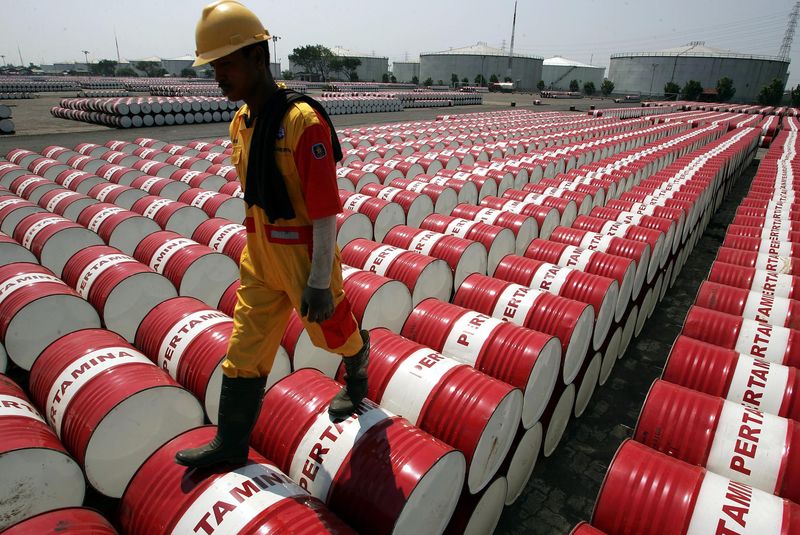Investing.com - U.S. oil prices were lower in European trade on Wednesday, amid speculation weekly supply data due later in the session will show U.S. crude inventories rose at a faster pace than expected last week.
Crude oil for April delivery on the New York Mercantile Exchange shed 40 cents, or 1.16% to trade at $34.00 a barrel by 08:05GMT, or 3:05AM ET. A day earlier, New York-traded oil futures rose 65 cents, or 1.93%, amid indications U.S. shale oil drillers are cutting back on production.
After markets closed Tuesday, the American Petroleum Institute, an industry group, said that U.S. oil inventories rose by 9.9 million barrels in the week ended February 26, surprising market players who were expecting a gain of 2.5 million barrels.
Crude stocks at the Cushing, Oklahoma, delivery hub for WTI increased by 1.8 million barrels, the API said, raising fears that the nation's largest storage facility is nearing full capacity.
The U.S. Energy Information Administration will release its weekly report on oil supplies at 15:30GMT, or 10:30AM ET, Wednesday, amid expectations for a gain of 3.6 million barrels.
Elsewhere, on the ICE Futures Exchange in London, Brent oil for May delivery dipped 7 cents, or 0.16%, to trade at $36.74 a barrel.
On Tuesday, London-traded Brent futures rose to a two-month peak of $37.25 as hopes that major oil producers will work together to cap output supported prices.
Russia’s energy minister said Tuesday that a “critical mass” of oil-producing countries had agreed to freeze oil production, state news agency TASS reported.
The United Arab Emirates’ energy minister said Tuesday that “everyone should move toward freezing production whether they like it or not,” due to current low oil prices, according to the country’s state news agency.
Russia, Saudi Arabia, Venezuela and Qatar announced last month that they were willing to freeze production at January levels, provided other oil exporters joined in.
Oil futures are down nearly 70% since the summer of 2014. Global crude production is outpacing demand following a boom in U.S. shale oil and after a decision by OPEC last year not to cut production in order to defend market share.
Meanwhile, Brent's premium to the West Texas Intermediate crude contract stood at $2.74 a barrel, compared to a gap of $2.41 by close of trade on Tuesday.
